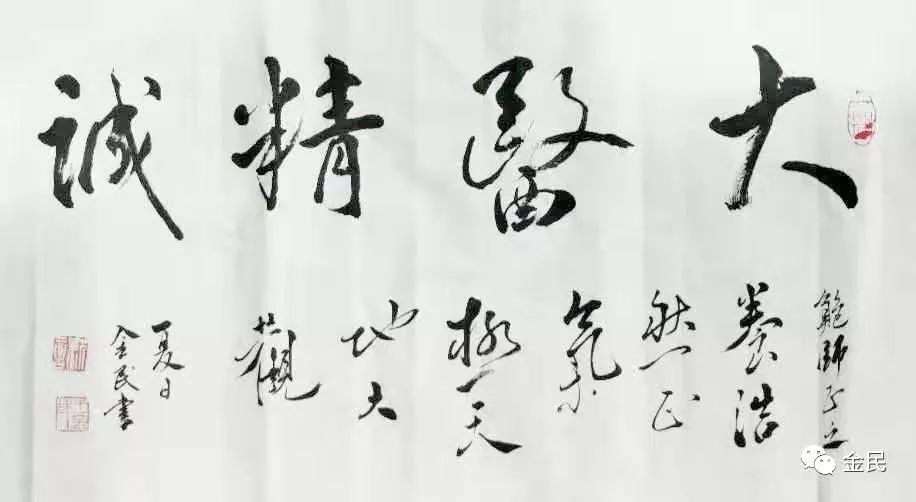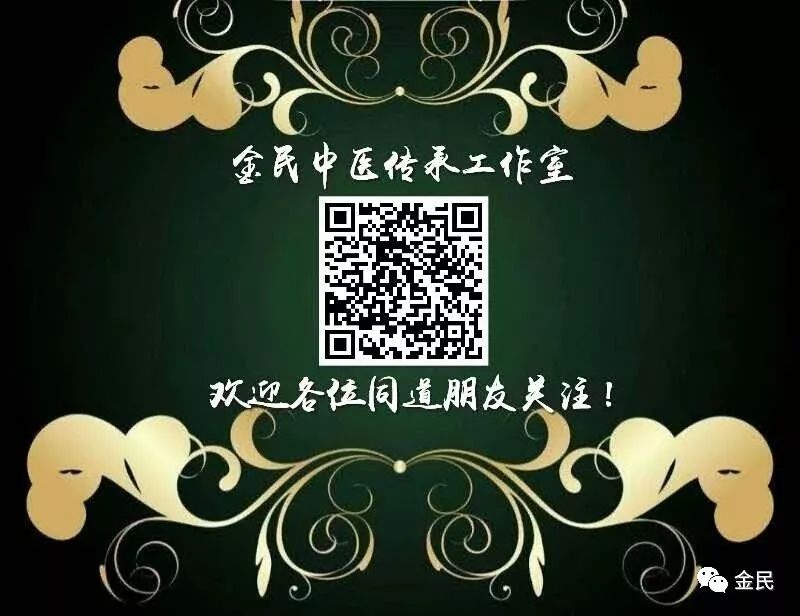Great physicians possess sincerity and cultivate the righteous Qi of the universe, embracing the grand view of heaven and earth.
Chapter 1: The Sequence of Zang-Fu Organs and Meridians – Section 10
Symptoms and Signs of Zang-Fu Organ and Meridian Disorders
Section 10
Question: The text states, “Jue Yang acts alone,” what does this mean? The teacher replied: This refers to having Yang without Yin, hence it is called Jue Yang.
Introduction: The editing of the “Jin Kui Yao Lue” follows the classification method of Liu Duozhou’s commentary on the “Jin Kui Yao Lue”. The annotations are primarily selected from the works of Qing Dynasty and modern medical practitioners. Due to personal understanding limitations, there may be biases; readers should extract the essence and discard the dross, combining it with clinical practice and focusing on self-understanding. Readers are welcome to leave comments to supplement famous discussions or share their own annotations!
Notes by Zi Heng
Student asked: What does the text mean by “Jue Yang acts alone”? The teacher answered: “Jue Yang” refers to solitary Yang, having Yang without Yin, hence it is called Jue Yang. Yin and Yang mutually support and rely on each other; without Yin, Yang cannot attach, acting alone above will inevitably lead to symptoms of Jue (reversal).
Qing Dynasty, You Yi, “Heart Classics of Jin Kui Yao Lue”
Jue Yang acting alone refers to the solitary Yang Qi, rising upwards; when Yang loses its Yin, it becomes excessive, similar to a man without a wife being unrestrained. The “Qian Jin Fang” states: When the Yin meridians are unblocked, blood disperses and does not flow, the righteous Yang thus becomes Jue, and Yin does not follow. This is indeed the essence of Jue Yang acting alone!
Qing Dynasty, Wu Qian, “Medical Canon of the Ancients”
[Note]
Yin and Yang moving together is harmony; Yin and Yang acting alone is reversal. Jue means reversal. When Yang acts alone, it is called Jue Yang because it has Yang without Yin.
[Collected Notes]
Li Yuan stated: Jue Yang is also called Yang Jue. The “Nei Jing” states: When Yang Qi is weak below, it leads to cold Jue; when Yin Qi is weak below, it leads to heat Jue. This Jue Yang acting alone indicates the general concept of having Yang without Yin.
Gao Shishan stated: This indicates having Yang without Yin, which is Jue Yang. The text states: When Yin Qi is weak below, it leads to heat Jue. The Emperor asked: How does heat Jue occur? Qi Bo replied: When Yin Qi is deficient, Yang Qi enters; when Yang Qi enters, the stomach is not harmonious; when the stomach is not harmonious, the essence Qi is exhausted; when essence Qi is exhausted, it does not nourish the four limbs. Thus, the kidney Qi declines daily, and Yang Qi prevails alone, which is why it is said to have Yang without Yin, leading to Jue Yang acting alone.
Qing Dynasty, Gao Xueshan, “Gao’s Annotations on Jin Kui Yao Lue”
This corresponds to the following section discussing Jue symptoms. When the spirit is dim and Qi is obstructed, one may suddenly lose consciousness, which is Jue. Jue Yang, also means Jue in Yang. The Yin blood of the liver and kidney is deficient below, and Yang Qi floats upwards without attachment, hence it is said to have “Yang without Yin.” However, the chest and diaphragm are where the heart governs the spirit and the lung Qi controls the vessels; when the heart and lung Qi are sufficient, the spirit is clear and the vessels are unobstructed, thus one does not lose consciousness and Jue occurs, which is the pulse of actual Qi intertwining. However, Qi has its rising and falling; if Qi violently accumulates, it leads to Jue; if Qi gradually disperses, Jue will naturally return. The absence of mention of life and death is due to the following section discussing the entry into the Zang and Fu organs.
Qing Dynasty, Huang Yuanyu, “Suspensions of Jin Kui”
Yang nature rises; if there is Yin to absorb it, it will rise to the extreme and descend. If there is Yang to warm it, it will descend to the extreme and rise. If there is Yang without Yin, then Yang rises without descending, acting alone above, hence it is called Jue Yang.
Qing Dynasty, Cao Yingfu, “Subtle Points of Jin Kui”
When the oil lamp is about to extinguish, the fire must be bright. When the oil is exhausted below, the light Qi escapes above; hence, those with deficiency and insufficient energy may experience slight heat in the afternoon, and in severe cases, experience strong heat at night, leading to throat obstruction and dry, cracked mouth. This fire is like kerosene or fire liquor; if saved with water, the flames will increase, but if smothered with ash, it will extinguish. Therefore, ancient methods of sweet warming and clearing heat exist, as the “Nei Jing” states, “Those who labor should be warmed.” However, nourishing blood and supporting Yin is essential, just as adding oil to a lamp; but one must be cautious not to use heavy doses. If one further adds cold and cool substances, how can there be anyone who does not perish?
Qing Dynasty, Shen Mingzong, “Zhang Zhongjing’s Jin Kui Yao Lue”
This corresponds to the “Nei Jing” stating that when Yin Qi is weak below, it leads to heat Jue. When Yin is weak below, Yang has no attachment, solitary Yang carries evil, and acts alone above, which is Jue Yang acting alone. This indicates having Yang without Yin, which does not mean there is no Yin Qi at all, but rather that Yin is deficient and cannot maintain Yang Qi.
Qing Dynasty, Chen Xiuyuan, “Shallow Annotations on Jin Kui Yao Lue”
Question: The text states, “Jue Yang acts alone,” what does this mean? The teacher replied: When Yin and Yang both act, it is harmony. This refers to having Yang without Yin, hence it is called Jue Yang. Jue means reversal. When Yin and Yang act alone, it is reversal and not harmony. This question and answer regarding Jue Yang illustrates the importance of balance between Yin and Yang. The “Nei Jing” states: When Yin is balanced and Yang is secret, the spirit is treated; when Yin and Yang are separated, the spirit is lost. The principles of Yin and Yang are profound indeed! Especially in Jing Yun: Jue Yang acting alone refers to solitary Yang Qi, rising upwards; when Yang loses its Yin, it becomes excessive, similar to a man without a wife being unrestrained. The “Qian Jin Fang” states: When the Yin meridians are unblocked, blood disperses and does not flow, the righteous Yang thus becomes Jue, and Yin does not follow; this is indeed the essence of Jue Yang acting alone!
Liu Duozhou, “Commentary on Jin Kui Yao Lue”
This section discusses the pathogenesis of Jue Yang. “Jue Yang acts alone” refers to the depletion of Yin blood in the liver and kidney, leading to Yang Qi losing its attachment, resulting in excessive Yang. Having Yang without Yin, having rise without fall, hence Jue Yang acts alone, with symptoms such as flushed face, dizziness, and unconsciousness.
Inheriting and promoting Traditional Chinese Medicine is our responsibility as practitioners! Copyright notice: The purpose of reprinting is to disseminate knowledge of TCM culture. Copyright belongs to the relevant rights holders. If there are any improper uses, please feel free to contact us for negotiation.
 Inheriting and promoting TCM culture
Inheriting and promoting TCM culture
Combining theory with clinical practice to enhance clinical skills, we welcome TCM colleagues to participate in discussions on clinical cases of classical formulas. Since the theoretical frameworks of TCM differ, the answers to clinical cases may vary; thus, there is no single answer, only the best. Through the exploration of clinical cases, we elevate our inspiration and look forward to your participation and comments…




